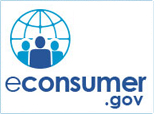The Commission works to advance government policies that promote competition and protect consumers.
- Introduction
- Advocacy Comments
- Amicus Briefs
- Congressional Testimony
- Workshops and Public Forums
- Reports
- Enforcement Policy Statements
- International Engagement
Introduction
 In addition to an aggressive enforcement program, the agency issues advocacy comments; files amicus briefs to aid in court deliberations; provides Congressional testimony; solicits and reviews public comments regarding rules, cases, and policies; issues advisory opinions; conducts workshops; and publishes reports that examine cutting-edge antitrust and consumer protection issues. The FTC also works with state, local, and community-based organizations throughout the nation, as well as competition and consumer protection agencies around the world, to promote cooperation and sound policy approaches. We have strong relationships with our counterparts at home and abroad, and help countries develop and enhance their competition and consumer protection programs.
In addition to an aggressive enforcement program, the agency issues advocacy comments; files amicus briefs to aid in court deliberations; provides Congressional testimony; solicits and reviews public comments regarding rules, cases, and policies; issues advisory opinions; conducts workshops; and publishes reports that examine cutting-edge antitrust and consumer protection issues. The FTC also works with state, local, and community-based organizations throughout the nation, as well as competition and consumer protection agencies around the world, to promote cooperation and sound policy approaches. We have strong relationships with our counterparts at home and abroad, and help countries develop and enhance their competition and consumer protection programs.
Advocacy Comments
The Commission continues to provide guidance and recommendations to government bodies and lawmakers on how best to incorporate competition principles into proposed laws, regulations, or policies. In the healthcare sector, FTC staff issued a number of advocacy comments. This included comments to legislators in four states (Oregon, Virginia, Tennessee, and two in New York (April NY, June NY), expressing concerns over efforts to provide antitrust immunity for mergers and other collaborations among health care providers. The FTC provided comments to legislators in Virginia and North Carolina regarding efforts to curb or eliminate certificate of need regulations. FTC staff also commented on pending legislation in Minnesota regarding the benefits and risks of disclosing the negotiated terms of the state’s health plan contracts. Staff continued to address scope of practice legislation, including comments to legislators in Missouri and South Carolina regarding the scope of practice of advanced practice nurses. Staff filed a comment with the Food and Drug Administration (FDA) in response to requests for public comment on the FDA’s proposed guidance on biologic naming. Also in response to a request for public comment, FTC staff commented to the Office of the National Coordinator for Health Information Technology (ONC) explaining the benefits of using standard setting to encourage interoperability and stressing the importance of safeguards to protect consumer health data.
 Issues at the intersection of competition and patent law and policy remain a key area of advocacy. For example, the FTC, together with the U.S. Department of Justice, submitted comments to the U.S. Patent and Trademark Office in response to the PTO’s comprehensive initiative to increase the quality of issued patents, expressing support for the PTO’s efforts to give clearer notice of the boundaries of claimed inventions.
Issues at the intersection of competition and patent law and policy remain a key area of advocacy. For example, the FTC, together with the U.S. Department of Justice, submitted comments to the U.S. Patent and Trademark Office in response to the PTO’s comprehensive initiative to increase the quality of issued patents, expressing support for the PTO’s efforts to give clearer notice of the boundaries of claimed inventions.
The FTC also continued to promote competition in the sale of automobiles, filing comments in Michigan regarding direct-to-consumer sales by automobile manufacturers. Staff also commented on a Pennsylvania bill that would impose additional restrictions and requirements on cemeteries that engage in the pre-need sale of cemetery goods Finally, staff filed two comments in New York (September NY, November NY) regarding the way electricity regulators weigh benefits and costs when designing plans to optimize the way electricity distributors and customers can respond to supply and demand.
On the consumer protection front, Commission staff provided the Department of Defense with a comment supporting DOD’s efforts to implement strong consumer protections for service members and providing feedback on several proposed amendments to its regulation implementing the Military Lending Act. FTC staff also provided the Federal Communications Commission (FCC) with a comment explaining the vital need for call-blocking technologies in the fight against illegal unwanted calls, and indicating staff’s view that no legal barriers or policy considerations prevent common carriers from offering such services to consumers. Finally, in a comment to the FDA, Commission staff recommended that the agency consider amending or repealing its framework for homeopathic medications because it may appear to conflict with the FTC’s advertising substantiation doctrine in ways that could harm consumers and cause confusion for advertisers.
Amicus Briefs
The Commission authorized staff to file a number of amicus briefs in 2015 where the agency’s experience and expertise could prove helpful to courts. Some of these briefs arose in cases affecting pharmaceutical markets. In June 2015, the FTC filed an amicus brief in American Sales v. Warner-Chilcott, pending before the First Circuit Court of Appeals. The Commission argued that the district court incorrectly held that a valuable non-cash benefit in the form of the brand’s agreement not to launch a so-called authorized generic in competition with the first-filing generic, was not a “payment” under the Actavis standard. In February 2016, the First Circuit agreed and adopted the FTC’s view that the Actavis analysis does not require a cash payment from the brand to the generic to violate the antitrust laws. The Commission had previously filed an amicus brief in a Third Circuit case raising the same issue, and in April 2015, the Third Circuit also agreed with our views.
The FTC also filed an amicus brief in Mylan Pharmaceuticals v. Warner-Chicott PLC in September 2015, asking the Third Circuit to reverse a district court judgment rejecting a product-hopping case. The brief explains that courts must consider the unique aspects of pharmaceutical markets when considering whether product hopping claims in that industry violate the antitrust laws.
Outside of pharmaceutical cases, in November 2015, the FTC filed an amicus brief in Woodman’s Food Market v. The Clorox Co. and The Clorox Sales Co., a Robinson-Patman Act case pending before the Seventh Circuit. Section 2(e) of that Act forbids sellers of goods from providing discriminatory promotional services to competing buyers for resale. The district court held that the law required Clorox to sell large-size packages to all retailers and not just big-box stores, and our brief argues that the decision is incorrect.
On the consumer protection side, the Commission filed amicus briefs related to the Fair Debt Collection Practices Act (or FDCPA). In December, the FTC filed a brief in Franklin et al v. Parking Revenue Recovery Services, in the Seventh Circuit. The agency argued jointly with the CFPB that parking fees and any additional fees incurred due to nonpayment constitute “debts” under the FDCPA. In August 2015, the FTC filed a joint amicus brief with the CFPB in Bock v. Pressler & Pressler, arguing that the FDCPA applies to debt-collection law firms that mass-file collection lawsuits without any meaningful attorney review.
Congressional Testimony
Congressional panels frequently ask FTC Commissioners and staff to testify about the agency’s activities and to provide expertise on topics related to consumer protection and competition. In 2015, consumer protection topics included data security, phone scams, illegal robocalls, connected cars, and fraud affecting seniors. Competition topics included antitrust oversight and the impact of proposed legislation that would eliminate the Commission’s role in adjudicating some merger cases. The Commission’s testimony shines a light on issues of importance to our nation’s lawmakers and consumers.
Workshops and Public Forums
Hosting workshops on emerging business practices and technologies is another example of how the Commission advances its competition and consumer protection missions. The FTC convenes fellow regulators and enforcement partners, as well as industry representatives, consumer advocates, and academics for lively, informative, and often groundbreaking discussions of the challenges posed by current issues.
 The Commission and the Department of Justice Antitrust Division co-hosted a February 2015 workshop – the second in the “Examining Health Care Competition” series – to study recent developments related to health care provider organization and payment models. In June 2015, the Commission held a workshop to examine competition, consumer protection, and economic issues raised by the proliferation of online and mobile peer-to peer business platforms in certain sectors of the economy, often referred to as the “sharing economy.”
The Commission and the Department of Justice Antitrust Division co-hosted a February 2015 workshop – the second in the “Examining Health Care Competition” series – to study recent developments related to health care provider organization and payment models. In June 2015, the Commission held a workshop to examine competition, consumer protection, and economic issues raised by the proliferation of online and mobile peer-to peer business platforms in certain sectors of the economy, often referred to as the “sharing economy.”
The agency also hosted several consumer protection events in 2015 to explore practices in the marketplace that pose challenges for consumers. In November, the FTC hosted a workshop on cross-device tracking to examine the privacy and security issues around the tracking of consumers’ activities across their different devices for advertising and marketing purposes. The Commission also held a workshop to examine the consumer protection issues raised by the practices of the online lead generation industry. At the Homeopathic Medicine & Advertising workshop, the FTC brought stakeholders together to evaluate advertising for the growing over-the-counter homeopathic drug industry.
The Commission also hosted several workshops as part of its Every Community initiative, including: a joint event with the NAACP to explore frauds that affect the African-American community; a Scam Jam event to empower Georgia consumers; the Utah Consumer Protection Summit; the Colorado Common Ground conference; an ethnic media news briefing on Spotting and Avoiding Scams in Our Communities; the Navajo Consumer Credit Seminar and Roundtable; and an event on Working Together to Advance Protections for Immigrant Consumers.
Reports
 Commission and staff reports continue to shed light on a range of important topics. Staff’s May 2015 report on Competition in the Pet Medications Industry highlighted the changing competitive landscape in pet medication markets and recommended ways to make those markets even more competitive.
Commission and staff reports continue to shed light on a range of important topics. Staff’s May 2015 report on Competition in the Pet Medications Industry highlighted the changing competitive landscape in pet medication markets and recommended ways to make those markets even more competitive.
FTC staff issued a report on the Internet of Things, which recommended a series of concrete steps that businesses can take to enhance and protect consumers’ privacy and security as they increasingly use Internet-connected devices. The FTC also issued a follow-up study of credit report accuracy that found most consumers who previously reported an unresolved error on one of their three major credit reports believe that at least one piece of disputed information on their report is still inaccurate.
Enforcement Policy Statements
The Commission issued an important statement providing additional guidance regarding the scope of the FTC’s competition authority related to unfair methods of competition. The Statement of Enforcement Principles Regarding Unfair Methods of Competition Under Section 5 of the FTC Act confirms that the Commission uses its standalone authority under Section 5 of the FTC Act to promote consumer welfare and uses a framework similar to the rule of reason when considering whether the conduct in question harms competition or the competitive process, taking into account any procompetitive justifications or efficiencies. These principles are consistent with those employed in previous enforcement actions brought by the Commission using its standalone Section 5 authority.
In the consumer protection arena, the FTC issued its Enforcement Policy Statement on Deceptively Formatted Advertisements, which explains how established truth-in-advertising principles apply to different ad formats, including “native” ads that look like surrounding non-advertising content. The policy statement affirms that advertisements and marketing messages that promote the benefits and attributes of goods and services should be identifiable as advertising to consumers.
International Engagement
The FTC cooperates with competition and consumer protection agencies in other countries to halt deceptive and anticompetitive business practices that affect U.S. consumers, and promotes sound approaches to issues of mutual international interest by building relationships with counterpart agencies around the world on competition and consumer protection issues.
 The FTC cooperated on enforcement-related mutual assistance with foreign agencies or multilateral organizations in 58 matters, using its authority under the U.S. SAFE WEB Act in 19 of these matters to provide investigative assistance to foreign authorities. One highlight was the FTC’s successful effort, working with the Royal Canadian Mounted Police and the U.S. Department of Justice, to obtain a court order from a Montreal court repatriating nearly $2 million to the victims of a phony mortgage assistance and debt relief scheme. The Commission and consumer protection agencies in 33 other countries that are part of the International Consumer Protection and Enforcement Network (ICPEN) relaunched the econsumer.gov complaint portal. The site, which is now available in eight languages and has a new, user-friendly interface, guides consumers through the process of filing a complaint.
The FTC cooperated on enforcement-related mutual assistance with foreign agencies or multilateral organizations in 58 matters, using its authority under the U.S. SAFE WEB Act in 19 of these matters to provide investigative assistance to foreign authorities. One highlight was the FTC’s successful effort, working with the Royal Canadian Mounted Police and the U.S. Department of Justice, to obtain a court order from a Montreal court repatriating nearly $2 million to the victims of a phony mortgage assistance and debt relief scheme. The Commission and consumer protection agencies in 33 other countries that are part of the International Consumer Protection and Enforcement Network (ICPEN) relaunched the econsumer.gov complaint portal. The site, which is now available in eight languages and has a new, user-friendly interface, guides consumers through the process of filing a complaint.
In the policy arena, the FTC played a leading role in revising the OECD’s Guidelines on Consumer Protection in Electronic Commerce, which were adopted by the OECD Council in early 2016, to address new developments in e-commerce including mobile applications, digital content, and peer platform marketplaces. The agency also was key in updating the United Nations Guidelines on Consumer Protection to include provisions on e-commerce, consumer financial services, dispute resolution and redress, and international cooperation.
The FTC continues to advocate for global interoperability and strong enforcement of privacy laws. For example, the FTC and enforcement agencies from seven other countries that are members of the Global Privacy Enforcement Network (GPEN) also launched a new information-sharing system – GPEN Alert. This system will enable the FTC and its counterparts to better coordinate international efforts to protect consumer privacy by sharing information about investigations while maintaining confidentiality.
The FTC’s international competition program promoted cooperation with competition agencies in other jurisdictions and convergence of international antitrust policies toward best practice throughout 2015. For example, in September, the FTC and the Department of Justice signed an antitrust memorandum of understanding with the Korea Fair Trade Commission to promote increased cooperation and communication among the competition agencies in both countries.
In addition to promoting convergence toward sound competition policy and enforcement, the FTC plays a lead role in advocating fair and transparent enforcement procedures, including through co-leading the ICN’s Agency Effectiveness Working Group and its Investigative Process Project. This multi-year project culminated in the adoption by the ICN’s 130 member competition agencies of ICN Guidance on Investigative Process, which is the most comprehensive agency-led effort to articulate best practices on providing due process in antitrust investigations. The FTC also participated in the interagency teams that negotiated outcomes with China in the Joint Commission on Commerce and Trade and the Strategic and Economic Dialogue, including with regard to procedural fairness in anti-monopoly law proceedings and the coherence of antitrust monopoly and intellectual property rules. We also played an active role in developing the competition chapters of Trans-Pacific and Transatlantic Trade and Investment Partnerships.
Finally, the FTC has continued its robust technical assistance program in which it shares its experience with competition and consumer protection agencies around the world, conducting 51 programs in 25 countries. Through its International Fellows Program, the FTC brought seven fellows to the FTC from four competition and three consumer protection agencies to work alongside FTC staff on antitrust and consumer protection enforcement matters.
